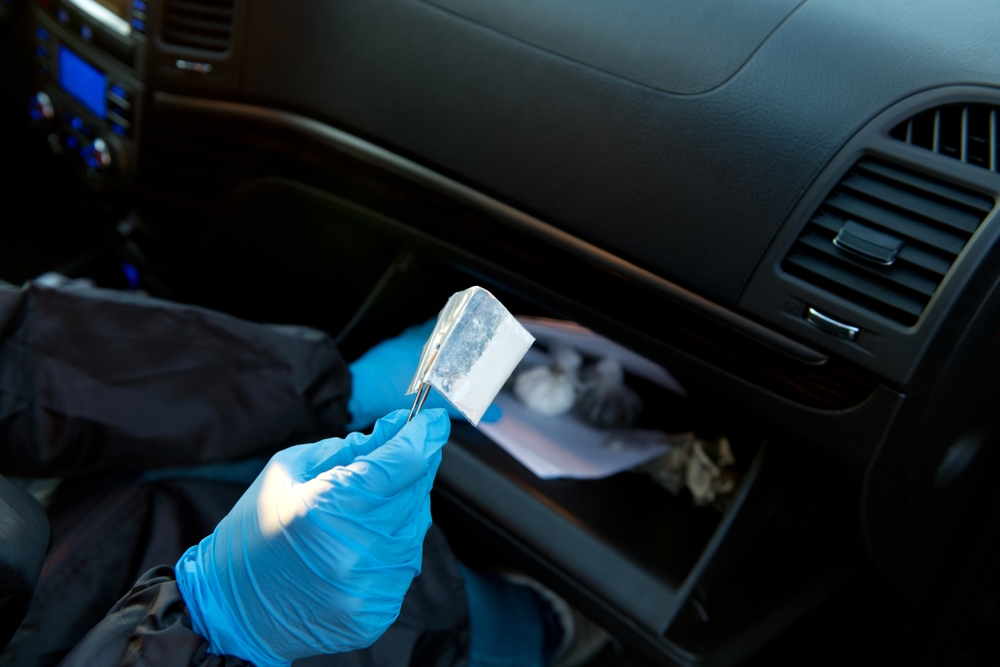
Being arrested for drug possession is a serious matter—but getting arrested while simply riding as a passenger in a rideshare vehicle like Uber or Lyft adds another layer of complexity. You weren’t driving. You didn’t own the vehicle. And you may not have even known the drugs were there. So how do police determine who’s responsible? And more importantly—what are your rights under Pennsylvania law?
At van der Veen, Hartshorn and Levin, we understand how unsettling it is to be charged with a crime simply because of proximity. In this blog, we explain how these cases unfold and what you should do if you're arrested for drug possession as a passenger in a rideshare vehicle.
Can You Be Arrested for Drugs That Aren’t Yours?
Yes—and it happens more often than you might think. Pennsylvania law allows for constructive possession, meaning that even if the drugs weren’t physically on you, you can still be charged if law enforcement believes you had control over or access to them.
Here’s how that plays out in a rideshare setting:
Let’s say police pull over your Uber, conduct a search, and find drugs in the back seat where you’re sitting. Even if the drugs were left behind by a previous rider—or belong to another current passenger—officers may presume they’re yours based on location and context. That assumption could lead to your arrest, even if you didn’t know the drugs were in the vehicle.
How Would Police Even Know to Search a Rideshare?
There are several ways a routine rideshare trip could escalate into a drug arrest:
- A traffic stop leads to further investigation (e.g., the driver’s behavior raises suspicion).
- Visible drug paraphernalia or odors trigger a probable cause search.
- Someone in the car—another passenger or even the driver—makes a statement or acts suspiciously.
- A tip from another rider or external source prompts law enforcement involvement.
- Drug-sniffing dogs are used during certain types of stops, especially in known high-traffic areas for drug transport.
Even if you’re just a passenger, any of these factors could draw attention to your proximity—and that’s when things get complicated.
Understanding Constructive Possession in Pennsylvania
Pennsylvania courts recognize two types of possession:
- Actual possession: The drugs are found on your person (in your pocket, bag, etc.).
- Constructive possession: The drugs aren’t physically on you, but you had knowledge of and control over them.
In a rideshare scenario, if drugs are found under your seat or near your belongings, police may argue you had constructive possession—even if you had no idea the drugs were there.
How Can You Defend Yourself If You’re Charged?
If you're facing drug charges after a rideshare trip, your defense will likely focus on lack of knowledge or control. The prosecution has the burden to prove you knowingly possessed the drugs.
Evidence that may support your defense includes:
- The drugs were not found on your body or in your personal items.
- Dashcam footage shows other passengers had access to the location where drugs were found.
- The arresting officer failed to read your rights or followed improper search procedures.
- The driver or another passenger admits to ownership.
- The rideshare vehicle had multiple occupants, creating reasonable doubt.
An experienced criminal defense attorney can investigate the facts, request rideshare data, challenge the legality of the search, and work to uncover any video or statements that support your version of events.
What Charges Might You Face?
The charges depend on the substance, quantity, and surrounding circumstances. Even if the drugs weren’t yours, being charged with possession can result in life-changing consequences.
Common charges include:
- Simple possession of a controlled substance
- Possession of drug paraphernalia
- Possession with intent to deliver (if a large quantity is involved)
Similar Post: How a Conviction for Drug Trafficking in Philadelphia Can Affect Your Life – and How We Can Help
What Are the Penalties in Pennsylvania?
Pennsylvania law imposes serious penalties for drug possession—even for a first offense. Depending on the type and amount of drug involved, you could face:
- Jail time or probation
- Thousands in fines
- Mandatory drug treatment programs
- A permanent criminal record
- Loss of eligibility for professional licenses or student aid
Possession of Schedule I or II substances, such as heroin, cocaine, or fentanyl, carries particularly harsh consequences, including mandatory minimums and long-term sentencing for repeat offenders. You may also face enhanced penalties if you are caught with drugs near a school zone.
Similar Post: Understanding Xylazine Possession Charges in Philadelphia: Street Use, Legal Consequences, and What to Do If Arrested
What Should You Do If You’re Arrested as a Rideshare Passenger?
If you’re arrested during a rideshare trip, it’s critical to take the following steps:
- Remain silent – You are not required to answer police questions without an attorney present.
- Don’t argue or resist – Stay calm and respectful to avoid additional charges.
- Call a criminal defense lawyer immediately – The earlier you get legal help, the stronger your defense can be.
- Write down everything you remember – Include the ride time, who was in the car, where you sat, and what the officer said or did.
Why Legal Representation Is Critical in Rideshare Drug Arrests
Unlike typical drug cases, rideshare-related arrests often involve murky facts, multiple occupants, and uncertain ownership of the drugs. Building a strong defense requires:
- Accessing dashcam footage
- Interviewing the driver and other passengers
- Challenging the legality of the search or stop
- Analyzing police reports for procedural errors
At van der Veen, Hartshorn and Levin, our criminal defense team is skilled in exposing weak evidence and protecting the rights of passengers wrongly charged due to proximity or assumption.
What Role Do Uber and Lyft Play After an Arrest?
While rideshare companies aren’t directly involved in the criminal process, they may still provide:
- Dashcam footage (if the driver consents)
- Trip and location data
- Driver statements or complaints
- Account suspensions for passengers linked to drug-related incidents
Even if your case is dismissed, you may be banned from using the platform if your arrest was reported.
Arrested as a Rideshare Passenger in Philadelphia? Protect Your Rights Today by Calling van der Veen, Hartshorn and Levin
If you were arrested for drug possession while riding in an Uber, Lyft, or other rideshare vehicle in Pennsylvania, don't assume the facts will speak for themselves. You need a defense team that understands how these cases work—and how to challenge them.
Contact van der Veen, Hartshorn and Levin for a confidential consultation. We’ll listen to your story, analyze the evidence, and fight to protect your record, your rights, and your future. We represent clients in Center City, Hunting Park, West Philadelphia, and Bristol.
Disclaimer: This blog is intended for informational purposes only and does not establish an attorney-client relationship. It should not be considered as legal advice. For personalized legal assistance, please consult our team directly.
